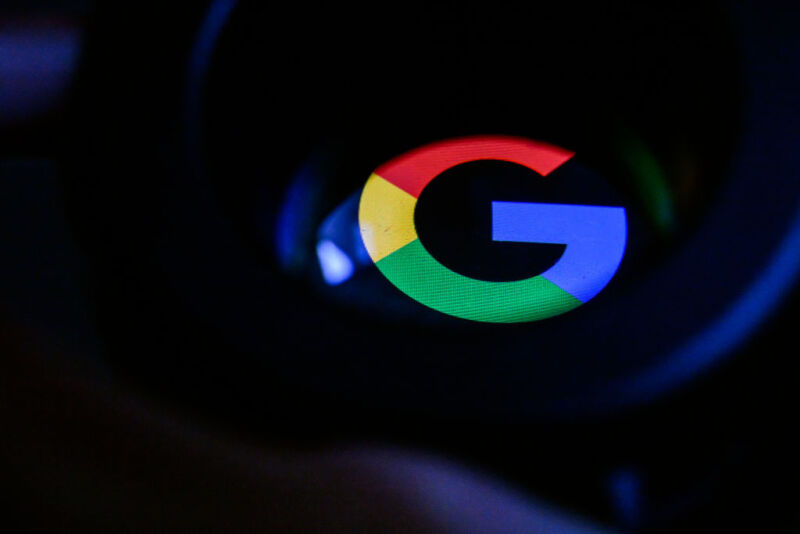“Not a good look”: Google’s ad tech monopoly defense widely criticized

Google wound down its defense in the US Department of Justice’s ad tech monopoly trial this week, following a week of testimony from witnesses that experts said seemed to lack credibility.
The tech giant started its defense by showing a widely mocked chart that Google executive Scott Sheffer called a “spaghetti football,” supposedly showing a fluid industry thriving thanks to Google’s ad tech platform but mostly just “confusing” everyone and possibly even helping to debunk its case, Open Markets Institute policy analyst Karina Montoya reported.
“The effect of this image might have backfired as it also made it evident that Google is ubiquitous in digital advertising,” Montoya reported. “During DOJ’s cross-examination, the spaghetti football was untangled to show only the ad tech products used specifically by publishers and advertisers on the open web.”
One witness, Marco Hardie, Google’s current head of industry, was even removed from the stand, his testimony deemed irrelevant by US District Judge Leonie Brinkema, Big Tech On Trial reported. Another, Google executive Scott Sheffer, gave testimony Brinkema considered “tainted,” Montoya reported. But perhaps the most heated exchange about a witness’ credibility came during the DOJ’s cross-examination of Mark Israel, the key expert that Google is relying on to challenge the DOJ’s market definition.
Google’s case depends largely on Brinkema agreeing that the DOJ’s market definition is too narrow, with an allegedly outdated focus on display ads on the open web, as opposed to a broader market including display ads appearing in apps or on social media. But experts monitoring the trial suggested that Brinkema may end up questioning Israel’s credibility after DOJ lawyer Aaron Teitelbaum’s aggressive cross-examination.
According to Big Tech on Trial, which posted the exchange on X (formerly Twitter), Teitelbaum’s line of questioning came across as a “striking and effective impeachment of Mark Israel’s credibility as a witness.”
During his testimony, Israel told Brinkema that Google’s share of the US display ads market is only 25 percent, minimizing Google’s alleged dominance while emphasizing that Google faced “intense competition” from other Big Tech companies like Amazon, Meta, and TikTok in this broader market, Open Markets Institute policy analyst Karina Montoya reported.
On cross-examination, Teitelbaum called Israel out as a “serial ‘expert’ for companies facing antitrust challenges” who “always finds that the companies ‘explained away’ market definition,” Big Tech on Trial posted on X. Teitelbaum even read out quotes from past cases “in which judges described” Israel’s “expert testimony as ‘not credible’ and having ‘misunderstood antitrust law.'”
Israel was also accused by past judges of rendering his opinions “based on false assumptions,” according to USvGoogleAds, a site run by the digital advertising watchdog Check My Ads with ad industry partners. And specifically for the Google ad tech case, Teitelbaum noted that Israel omitted ad spend data to seemingly manipulate one of his charts.
“Not a good look,” the watchdog’s site opined.
Perhaps most damaging, Teitelbaum asked Israel to confirm that “80 percent of his income comes from doing this sort of expert testimony,” suggesting that Israel seemingly depended on being paid by companies like Jet Blue and Kroger-Albertsons—and even previously by Google during the search monopoly trial—to muddy the waters on market definition. Lee Hepner, an antitrust lawyer with the American Economic Liberties Project, posted on X that the DOJ’s antitrust chief, Jonathan Kanter, has grown wary of serial experts supposedly sowing distrust in the court system.
“Let me say this clearly—this will not end well,” Kanter said during a speech at a competition law conference this month. “Already we see a seeping distrust of expertise by the courts and by law enforcers.”
“Best witnesses money can buy”
In addition to experts and Google staffers backing up Google’s proposed findings of fact and conclusions of law, Google brought in Courtney Caldwell—the CEO of a small business that once received a grant from Google and appears in Google’s marketing materials—to back up claims that a DOJ win could harm small businesses, Big Tech on Trial reported.
Google’s direct examination of Caldwell was “basically just a Google ad,” Big Tech on Trial said, while Check My Ads’ site suggested that Google mostly just called upon “the best witnesses their money can buy, and it still did not get them very far.”
According to Big Tech on Trial, Google is using a “light touch” in its defense, refusing to go “pound for pound” to refute the DOJ’s case. Using this approach, Google can seemingly ignore any argument the DOJ raises that doesn’t fit into the picture Google wants Brinkema to accept of Google’s ad empire growing organically, rather than anti-competitively constructed with the intent to shut out rivals through mergers and acquisitions.
Where the DOJ wants the judge to see “a Google-only pipeline through the heart of the ad tech stack, denying non-Google rivals the same access,” Google argues that it has only “designed a set of products that work efficiently with each other and attract a valuable customer base.”
The main problem with Google’s defense appears to be the evidence emerging from its own internal documents. AdExchanger’s Allison Schiff, who has been monitoring the trial, pulled out the spiciest quotes from the courtroom, where Google’s own employees seem to show intent to monopolize the ad tech industry.
Evidence that Brinkeman might find hard to ignore include a 2008 statement from Google’s former president of display advertising, David Rosenblatt, confirming that it would “take an act of god” to get people to switch ad platforms because of extremely high switching costs. Rosenblatt also suggested in a 2009 presentation that Google acquiring DoubleClick for Publishers would make Google’s ad tech like the New York Stock Exchange, putting Google in a position to monitor every ad sale and doing for display ads “what Google did to search.” There’s also a 2010 email where now-YouTube CEO Neal Mohan recommended getting Google ahead in the display ad market by “parking” a rival with “the most traction.”
On Friday, testimony concluded abruptly after the DOJ only called one rebuttal witness, Big Tech on Trial posted on X. Brinkema is expected to hear closing arguments on November 25, Big Tech on Trial reported, and rule in December, Montoya reported.
“Not a good look”: Google’s ad tech monopoly defense widely criticized Read More »


